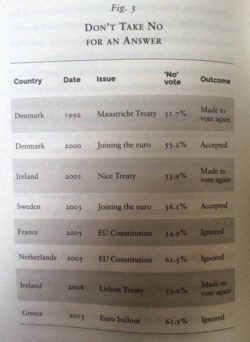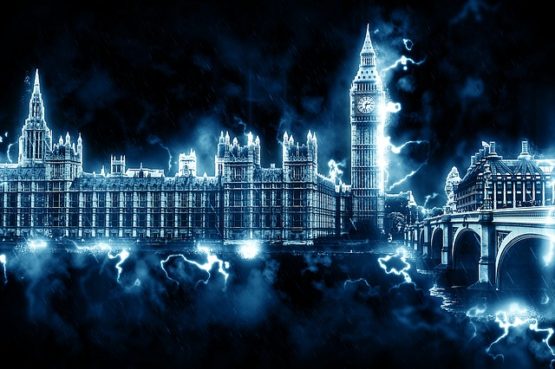Blog Archives
I kid you not, yesterday I started two posts, one of which that was supposed to go up today.
The first involved Blue Lives Matter, and Black Lives Matter, and the intersection between the two. The opening point, which I had actually written, involved an argument about how blue lives actually are more important than black ones and white ones, in a manner of speaking. (The second part, which I haven’t yet written, would go on to explain the limits of this idea and how we have extended beyond them.)
The second involves the sense of glee that some people feel for the Pitchfork Comeuppance. The notion that “they” (a political group on the opposite side of an issue) didn’t listen and now people are taking this up with threats of violence. And sure enough, at least a few people early on made comments about how this, the violence, is why police need to reform. Which is right, in a way, and also wrong. But it’s been deployed by all sides. Last night is a reminder that it’s not a completely abstract argument.
Anyway, I have to decide what to do with those posts. Neither will come up today. In lieu of that, I will simply post the song of the moment.
 Good-bye to Neil Farage, the marmite of British politics and arguably the most successful British politician of an era. That said, I expect Team Norway to win and free movement to remain even if the UK doesn’t remain in the EU.
Good-bye to Neil Farage, the marmite of British politics and arguably the most successful British politician of an era. That said, I expect Team Norway to win and free movement to remain even if the UK doesn’t remain in the EU.
Eastern Europe makes its move…
Moving to Canada is an oft-used threat, but it’s actually kind of hard. Meanwhile, a look at population growth in the Great Maple Leaf.
Sort of like the mysterious man from Thrill Seekers, This guy keeps dying in every terrorist attack, and there’s (non-time-travelling) a reason for it.
JoAnna Novak worries that America is going to destroy sriracha because America.
 This should surprise approximately nobody: With diversity comes segregation.
This should surprise approximately nobody: With diversity comes segregation.
This is probably a good thing, considering that Twitter needed some fresh imagery in its election commentary.
Eastern Europe makes its move…
Will uranium seawater extraction make nuclear power completely renewable?
Woohoo! We’ve got more helium! We’ve got more helium!
Ben Casselman argues that while poor kids need the summer jobs, the rich kids are getting them.
In the medical profession, as in many others, pay-for-performance is a tricky thing.
Mimi Teixeira writes of the business and underbelly of clothing donations.
In effort to avoid contributing to the controversy, a rape victim in Germany lied about the race of the assailants.
I used to have one of these! Actually, three. People like them because they’re reliable, but they kept dying on me after about a year or so.
Homeschoolers are apparently killing it on the SAT.
Gaby Dunn complains about a common practice in media:
Not too long ago, I was desperate for paid work, so I gave away a lot of my ideas and rights. In 2013 I was a staff writer for the website Thought Catalog and they asked me if they could publish a book of my previously published TC essays. An editor and I put it together while I was a salaried employee for no extra money. I did not receive any bonus or commission on sales of the book. But wow! I had gotten to publish a book! Incredible! Three years later, I no longer work at TC. I am more well-known and have more fans. These fans find the book and excitedly purchase it thinking they’re supporting me. But I don’t see any of that money. The more high-profile I become, the more the book sells for Thought Catalog.
After that, I got hired at Buzzfeed, and it happened again. I was hired first as on-camera talent and then as a scripted series writer. I was excited to have a steady writing gig and thrilled by the $55,000 annual salary. Before being hired there, I had no idea the company had a huge YouTube presence, but I thought I’d stay a couple of months, find another industry gig, and peace out. I ended up staying eight months because the non-compete caused me to turn down other work and meetings that might have led to other work. There was a constant push-and-pull about how much we could do outside of Buzzfeed and how much other projects would take time from our full-time jobs. Even the concept of “time” was up for debate. I stayed because I felt trapped.
I went into it not entirely prepared to be sympathetic, but I thought she actually made some good points and the terms of “employment” really do seem excessive. Perhaps it can be chalked up to “the market at work” but at some point we’re going to miss our on talent if enough people actually start reading and considering the contracts.
Now, let me put on my White Male hat for a moment and say one thing about it… the focus on the demographic triumvirate (women, persons of color, LGBTQ was really something of a distraction, and I suspect lessens rather than expands the impact of the piece. Throughout the article, Dunn talks about how those groups are especially impacted. The contents of the article really are pretty important for anybody to understand, and the problem is a problem for anybody in media. The demographic framing runs the risk of telling others either “This is not something you want to worry about” or generally making them less sympathetic because they are on the “wrong” side of this. People who jump to the latter conclusion are not acting as their ideal selves… but most of the time, most people don’t.
India just set a new all-time record high temperature — 123.8 degrees (Washington Post | May 19, 2016)
A small city in northwest India climbed to a searing 51 degrees Celsius — or 123.8 degrees Fahrenheit — on Thursday afternoon, and broke the country’s record for all-time hottest temperature. The previous record, 50.6 degrees Celsius, was set in 1886.
The record was broken in Phalodi, which is just 125 miles away from the city that, up until this afternoon, claimed fame as the hottest location in India — Pachpadra.
April and May tend to be the hottest months in northwest India, and this year has been exceptionally so.
Europe to America: Your love of air-conditioning is stupid (Washington Post | July 22, 2015)
The U.S. has been the world’s leader in air-conditioning ever since, and it’s not a leadership Americans should necessarily be proud of. According to Stan Cox, a researcher who has spent years studying indoor climate controlling, the United States consumes more energy for air conditioning than any other country. In many parts of the world, a lack in economic development might be to blame for a widespread absence of air-conditioning at the moment. However, that doesn’t explain why even most Europeans ridicule Americans for their love of cooling and lack of heat tolerance.
Of course, Northern Europe is still colder than most regions within the United States and some countries, such as Italy or Spain, have recently seen an increase in air-conditioning. “The U.S. is somewhat unusual in being a wealthy nation much of whose population lives in very warm, humid regions,” Cox told The Washington Post in an e-mail. However, the differences in average temperatures are unlikely to be the only reason for Europeans’ reluctance to buy cooling systems. It’s also about cultural differences.
Whereas Americans prefer an average temperature of 70 degrees, Europeans would consider such temperatures as too cold, Michael Sivak from the University of Michigan says. “Americans tend to keep their thermostats at the same temperature all year around. In contrast, Europeans tend to set their thermostats higher in summer and lower in winter. Consequently, while indoors, Europeans wear sweaters in winter, while American wear sweaters in summer,” Sivak told The Washington Post.
Furthermore, Europeans are generally more used to warmer room temperatures because most of them grew up without any air-conditioning.
France heat wave death toll set at 14,802 (Associated Press | September 25, 2003)
PARIS (AP) — The death toll in France from August’s blistering heat wave has reached nearly 15,000, according to a government-commissioned report released Thursday, surpassing a prior tally by more than 3,000.
Scientists at INSERM, the National Institute of Health and Medical Research, deduced the toll by determining that France had experienced 14,802 more deaths than expected for the month of August.
The toll exceeds the prior government count of 11,435, a figure that was based only on deaths in the first two weeks of the month.
The new estimate includes deaths from the second half of August, after the record-breaking temperatures of the first half of the month had abated.
The bulk of the victims — many of them elderly — died during the height of the heat wave, which brought suffocating temperatures of up to 104 degrees in a country where air conditioning is rare. Others apparently were greatly weakened during the peak temperatures but did not die until days later.
Photo by ToddMorris 
 Mental illness… or demonic possession?
Mental illness… or demonic possession?
Yes.
Holy freakin’ crap, what a mess. Given the nature of the error, it seems to me that this is something that should be written off.
Minor League baseball players are barely paid in the five digits, and congress may allow them to be paid less. Minor league sports and their athletes, it turns out, are not very valuable (unless associated with a university).
This strikes me as about right. Yes means yes doesn’t just mean changing the threshold for rape, but changing the way young people have sex. It’s not just for college campuses, though. It looks like it’s going to be up to the courts, in the end.
Well this is a lovely story. So is this. Good job, Dixie. Good work.
I don’t mind this, but I’m not going to pretend the fact that it moves the ball in the direction it does isn’t significant. The concept of legislative momentum is right there in the story: We should do this because of that previous thing we did.
Lee Drutman argues that we have too many lawyers in politics. It’s something conservatives complain about, but maybe it ought to be liberals doing the complaining.
 Brookings Institute has discovered the concept of NAM.
Brookings Institute has discovered the concept of NAM.
A neuroscientist writes of all we don’t know about the brain.
If we’re looking for habitable words, we should look for orange planets, because that’s what Earth used to be.
I’ve linkied some bad news regarding the adoption of EMR, but here is some good news.
NPR looks at whether it’s cost-effective to pay teachers $100,000 a year.
Dennis Perkins writes of his experiences working in the video store industry for 25 years, and watching it die.
1. There is already a wall between Mexico and US. Well ok, a fence between parts of it. pic.twitter.com/cCmSFyeJyq
— Chris Arnade (@Chris_arnade) July 1, 2016
2. One section runs through all of El Paso, splitting it from Juarez, a town of 2 million pic.twitter.com/Lf98BTPjYH
— Chris Arnade (@Chris_arnade) July 1, 2016
3. It is just part of El Paso now. It cuts through parks pic.twitter.com/GZZNaehUUH
— Chris Arnade (@Chris_arnade) July 1, 2016
Back in high school, I knew a kid named Merrick. He was geeky to an extreme, awkward. Not bad looking, but in his junior year in high school he got his first girlfriend with a girl who (also not bad looking) had not yet had a boyfriend. He left the state for college, and we lost touch. We ran into each other in a very chance encounter, and he had transformed into someone completely different. Gone was the awkward arrogance of the geek, in was the confidence of someone who had made it in the financial world of London with a gorgeous wife and a polished demeanor.
Merrick had some sharp words about the Brexit. He voted against it for largely cultural reasons, though he said it would be economically disastrous as well. There is not much unusual in his analysis except for the personal aspect. This is not what he wanted, but it’s not the end of the world for him. He has skills and education. He is not rooted in Britain and if they hang out an unwelcome sign, he can do his thing in New York or Dublin or anywhere else. If Britain decides it doesn’t want him, he has no need of it.
His readiness and willingness is a perfectly fair response. And it’s fortunate that he has the opportunity to pick up and go. There’s a decent chance I would, too.
There are two ways of looking at it.
I look at it as (potentially) London’s loss and Britain’s. Merrick and his ilk are law-abiding, educated money-generators. Any sane country should want as many of them as possible. If he leaves London I hope it’s to return to the states. I want as many Merricks as we can find, regardless of their country of origin. I’m not in favor of open borders, but there aren’t that many of his caliber and if we took them all in, it would be almost all upside. Okay, okay, when it comes to Merrick I may be a bit biased, but you get the idea. I look at Merrick and people like him as a gain for any economy and culture that would have them, and I would similarly view their departure as a loss.
That’s not the only way of looking at it, however. Now, most uncharitably the other way of looking at it is looking at Merrick and noticing that he’s not white. He’s not not-white, either, exactly. He has olive skin, black hair, and a Scottish name. I suspect that as far as the census bureau is concerned, he’s white, but if a climate of hate were to take over Britain, he could very well be a target. In any event, no matter how good his accent, one thing he isn’t is English. He is as American as American can be, and most importantly he is a foreigner. Though he isn’t Jewish and doesn’t use the latter word, he’s a rootless cosmopolitan. Living in London.
All of these things are potentially important. In 2013, Alex Massie wrote a foreshadowing piece on the relationship between London and England, and it is pretty fraught. The internationalization and wealth of London has separated it from the rest of the country in a way that isn’t healthy. There was a predictable urban/rural divide, but notably England’s second largest city voted to leave. And despite Britain being an urban country, Leave won more votes.
The rest of the country doesn’t feel like it’s in it with London, and the response after the vote actually sort of confirmed that fact. “You want to leave the EU? Fine! We’ll leave you!” and something about inquiring whether apples were enjoyable. From afar, it looked a fair bit like the Remain’s motto could be boiled down to “London is who we are.” This sold better in London than outside of London. Which was lost due to the fact that everyone involved seemed to be from London.
As, of course, is Merrick. Which makes Merrick emblematic of three causes of resentment: He’s an immigrant, he’s based in London, and he’s in the money, both making good money and involved in the financial sector. As such, it’s really quite possible that the rest of England might not miss him as much as they should.
The debate that has erupted elsewhere is whether or not the Leave campaign was racist. Some observers are looking at other explanations, such as much of the above about London and inequality and the like. Others just don’t understand why we can’t call racism racism. It’s racist. It’s racist. It’s racist.
Which much of it is. Maybe most of it or maybe just some. It depends on how we define the term. But somewhere north of 0% of it is racism, and somewhere south of 100% of it is racism. Advocates of Leave like to argue it’s not racism because racism is unseemly and they themselves are not racist so what gives? Organizers, though, know that they have the racist vote and have done little to dissuade the votes that they need. Advocates of Remain, however, like the theory because it means that they can ignore the other side. If it’s racism it’s wrong. QED. But what do you do when you define something as racist, and 52% of the country is on the wrong side of that line that you drew? Saying racist isn’t enough. Even if we grant your moral and intellectual superiority, what do you do with a morally inferior electorate?
We often view these things as “local” problems. In the US, people are talking about what the GOP did to invite Trump, and of course Trump himself for what he is and isn’t doing. In Britain folks are blaming the Leavers and Cameron for giving the public a say. But there is something in the water, because it’s happening “locally” in a lot of places all at once. No matter how much Matthew Yglesias argues that Obama’s approval numbers suggest it’s a narrow phenomenon, 43% of the Democrats voted for a self-described socialist, 45% of Republicans voted for a megalomaniacal buffoon under a white ethnocentric banner, Labour voters remain firmly behind Jeremy Corbyn, the National Front is ascendant, AfD is ascendant, both the Golden Dawn and the Greek leftists are ascendant, and the mainstream parties in Austria combined for 23% of the vote in the last presidential election, leaving a runoff between the Greens and the far-right Freedom Party.
The consensus is breaking down. The historical tactic of dismissing the fringe as the fringe isn’t working anymore. Cosmopolis vs Hinterlandia has become an international phenomenon, and the fringe is closing in.
Merrick doesn’t need Britain. Britain, it increasingly believes, doesn’t need Merrick.
 Most mass shooters are white men… until you control for population size.
Most mass shooters are white men… until you control for population size.
The Guardian has a pretty fantastic series on the gun problem in the US, and the difficulties that lay ahead of those that want to make headway via gun control.
The notion that the NRA stymies gun control with its deep war chest is still wrong.
Behold, the power of the AR-15.
I am not one to put on my commando gear and yell “BENGHAZIIIIIII!!!!” but the attempt to spread the blame of Benghazi to the preacher and the filmmaker despite knowing that it was a planned terrorist attack is probably the most shameful thing the Obama Administration did during its tenure.
Democrats, meanwhile, don’t know what caused Benghazi, but evidently think it’s something to do with Trump.
Amy Otto says that the problem with men is that they have too-easy access to boobs.
Just in case you were worried about subprime borrowers getting loans, the government is on top of it. What could go wrong?
Patrick clark looks at baseball stadia and their rather short lifespan. I’m genuinely quite stunned to see that a Sun Belt team is spending over $100m to buy Turner Field and then spend a lot more to transform it for their Sun Belt football team.
Some former FDA commissioners are arguing that the FDA should become an independent (cabinet-level) agency. My view on this is entirely outcome-based. What do they want to be doing that red tape won’t allow? What are they being required to do that they wouldn’t otherwise?
 According to one poll, enforcement of the law against unauthorized immigrants seems quite popular across races.
According to one poll, enforcement of the law against unauthorized immigrants seems quite popular across races.
Animations of Kafka, if you’re into that sort of thing.
I still think Nielsen is nothing but a scam (Crackpot Theory #2), but the story behind the Mr Nielsen is interesting.
Yes, yes, let’s please find a way to turn polution into fuel!
How attention and social cues help us determine facial attractiveness.
So you may not have heard, but the Brits held a referendum and voted to exit the European Union. This has garnered some interest in the democratic process.
Referenda have always been controversial to some extent, but for reasons unknown Reuters, Newsweek, and the Washington Post all ran pieces decrying the results of the UK/EU referendum, which coincidentally did not the way that most journalists and news outlets believed that it should have. In Newsweek, Rob Cox describes it thusly:
Imagine, as an analogy, that you are sick. You go to a doctor. But suppose your “doctor” doesn’t study the facts, doesn’t know any medicine and makes her decisions about how to treat you on a whim, on the basis of prejudice or wishful thinking.
Imagine the doctor not only prescribes you a course of treatment, but literally forces you, at gunpoint, to accept the treatment.
We’d find this behavior intolerable. You doctor owes you a duty of care. She owes it to you to deliver an expert opinion on the basis of good information, a strong background knowledge of medicine and only after considering the facts in a rational and scientific way. To force you to follow the decisions of an incompetent and bad faith doctor is unjust.
But this is roughly what happens in democracy. Most voters are ignorant of both basic political facts and the background social scientific theories needed to evaluate the facts. They process what little information they have in highly biased and irrational ways. They decided largely on whim. And, worse, we’re each stuck having to put up with the group’s decision.
Unless you’re one of the lucky few who has the right and means to emigrate, you’re forced to accept your democracy’s poorly chosen decisions.
 Let’s run with the doctor analogy, for a moment. He posits the people in both the position of the doctor and the patient. The more direct analogy, though, is to consider the government professionals as the doctor. Let’s assume, being the knowledgeable and good individuals that they are, that they are good doctors. At the end of the day, though, the decision on medical care is more likely to reside in the patient. The patient with little or no medical training at all, in most cases. The doctor can refuse treatment, but can’t force treatment most of the time. They are there to advise and perform.
Let’s run with the doctor analogy, for a moment. He posits the people in both the position of the doctor and the patient. The more direct analogy, though, is to consider the government professionals as the doctor. Let’s assume, being the knowledgeable and good individuals that they are, that they are good doctors. At the end of the day, though, the decision on medical care is more likely to reside in the patient. The patient with little or no medical training at all, in most cases. The doctor can refuse treatment, but can’t force treatment most of the time. They are there to advise and perform.
The overall theme from the three pieces is constant: Leave it to the experts. Leave it to the doctors. What’s notable the analogy, however, is that it reveals the limitations of the very thing it advocates. For the most part, doctors don’t choose your treatment. Rather, you choose your treatment from the options that (their insurance company, the state, etc) they give you. Most frequently, their job is to inform and advise. In the case of the referendum, that’s exactly what happened. The politicians gave the public the decision, they campaigned for one option or another, and left it to the people.
If one is predisposed to believe that the Brexit is an unambiguously bad idea, it’s quite seductive to accept the argument the “doctor” shouldn’t have given “the patient” the choice, any more than a doctor would give chemotherapy to a patient with the flu. That’s fair. But that’s not an argument against referenda; that’s an argument against the Brexit. More abstractly, though, the argument is about whether or not people should be involved in the big, complex decisions. Or whether we should leave it to the experts.
More often than not, I am in agreement with Cox and the others. Leave it to the professionals. If they make bad decisions, vote them out! That’s how indirect democracy works, and it’s a good system. I generally agree with this. However, there are some questions that are so fundamental that I believe they really ought to be left to the people. One area of fundamentality would include elections, for example. We can’t trust the experts to get everything right because they have a skin in the game, and they can make decisions that make voting them out more difficult. Another area deals exactly with issues like Brexit: collective status.
One thing to keep in mind here is that “collective status” does not merely apply to Leave in the sense that the UK just voted and Scotland did last year. It also applies to joining. The EU is itself a bit complicated because, except for the most recent additions, the union was formed a little bit at a time. The “EU” the the UK originally joined is not the EU that exists today, different both in degree and kind. It’s not always easy to determine which, if any, of the alterations needed a vote (and with what threshold). It should also be pointed out that some political entities of some countries did not vote to join in the first place, which seems relevant.
In 1967, 1993, 1998, and 2012, Puerto Rico held a plebiscite to determine its legal status: State, territory, or independent. This is a very complicated issue, and it can easily be argued that the politicos of Puerto Rico know best what status is best for the territory. But I cannot imagine elevating them to statehood, or granting them independence, without a public vote. It’s too big, and too fundamental a decision to be left to people whose views and interests may diverge greatly from the populace. There is a general consensus around this, because the Puerto Rico establishment and the US establishment both tend to want statehood, but nobody is really acting until they can get at least a majority in a straight vote.
That is not to say, however, that Cox and the others are completely wrong. Far from it, as voters are actually pretty terrible. They are subject to campaigns built on hyperbole and falsehoods. They have collective moods that can turn out to be quite transient. It’s one thing for this to be the case when handling day-to-day affairs, and even who is elected to government. But when we’re talking about such fundamental and foundational decisions, we really don’t want them to be made based on a whim or a transient mood. So the problem is not, as many have said, that the people are given a direct voice. The problem is that a temporary 51% can overrule everybody. The problem with the Brexit vote is not that it was held, or even that they made the wrong decision, but that the decision was (theoretically) made by 52% of the population, and that 52% could be 47% a year from now. Or today. Who knows?
Big decisions are best made when made by a consensus. Sometimes you can’t get a consensus, of course. And what to do then? Well, assuming it’s not time-critical, nothing. Status quo bias is often considered fallacious, but it’s often quite reasonable. The status of a political entity is one of those times, generally speaking. Dynamism has its virtue, but so does stability. It’s hard to invite investment when legal status is always up for grabs. That applies to both the private sector and the public sector. If Puerto Rico has one foot out the door, we’re not likely to institute many 20-year plans, and a lot of good plans can take 20 years. If Britain’s status within the EU is tenuous, then so will be investment in either direction.
What constitutes “a consensus”? Well, the more agreement the better, obviously, but it’s not 50%+1. I wish I could look at the UK, Scotland, Puerto Rico, Catalonia, Quebec, and a spectrum of states and give a number like 60% or 2/3. It’s going to depend. I look at the first three of these situations (I don’t know enough about Catalonia or Quebec) and I believe 60% ought to be sufficient, though in the case of the UK you might also want more than 50% in each of its constituent parts. Even if there was less than 60%, though, there could be wiggle room. If instead of 52% the Brexit vote had gotten 56%, and then five years later another referendum got 58%, it might be worth pulling the trigger so that investment (and everything else) can move forward. The important thing is that you have more than a majority that is not a product of transient sentiment, preferably with support moving in the right direction and the youngs on the right side and the olds on the wrong.
All of this ends up putting the power right back into the legislature and government. Which, contra my seeming disagreement with Cox and others, is as it should be. And is, it’s worth noting, what is happening with the Brexit, Puerto Rico, and so on. Parliament has the power to put a stop to this, and if they choose not to that is the decision that the duly elected representatives of the United Kingdom chose. Congress (including supporters of Puerto Rican statehood) disaregarded the results of the 2012 Puerto Rico plebiscite because the results just didn’t provide sufficient clarity of consensus. The fault in the Brexit campaign, and Scotland before it, was giving so freely the impression that 50%+1 makes it a done deal. That lead to what seems like a commitment that they are either going to have to follow through on or reneg on.
That’s not a position they should have put themselves in. That’s not a position we should ask or expect countries to put themselves in.
Monster truck vigilantes!
Drill, baby, drill! An Obama appointee says so! What will they say about the Keystone lawsuit?
 Ultra-orthodox Jews… turning to Jesus? This… makes me kind of queasy.
Ultra-orthodox Jews… turning to Jesus? This… makes me kind of queasy.
There is a significant gravitational pull on daycare research to reach a particular conclusion. Granted, though it’s worth pointing out somewhere that the benefits of daycare to parents are manifest. So there are priorities to balance.
If nothing else, I’m honestly surprised that they’re willing to destroy this much capital because they’re not cheap to train. Sigh. The site of a pile of dead dogs really gets to me, and don’t click on the link if it gets to you.
While Britain is the epicenter, the Brexit has some ramifications for Poland, too. From what I understand Britain is still likely to bring in a lot of Poles due to other agreements. If they don’t, though, could there be any benefit to Poland from not losing the human capital?
If Blade Runner and typeface are your thing, this is the story for you. Personally, I enjoy stories about people obsessing over seeming minutiae.
Women in the US are twice as likely as Canadians to die from pregnancy and childbirth.
 Humans are intellectually ill-equipped for democracy, says science. The general public was unavailable for comment because they were too busy watching Upworthy videos.
Humans are intellectually ill-equipped for democracy, says science. The general public was unavailable for comment because they were too busy watching Upworthy videos.
Adam Ozimek argues that low-skilled labor markets need better information, on the basis of disparate Armed Forces Qualification Test results.
Marcus Winters takes issue with Hillary Clinton’s portrayal of charter schools as succeeding-through-skimming.
Cheaper desalination? Cheaper desalinization!
Estonia… the Hong Kong of Europe?
Nopenopenopenopenopenopenopenopenope!!!!
So it looks like I’ll be making a trip to Burger King.
The FDA has let it be known that it believes it will be a good thing when the ecigarette industry consolidates. Maybe they should have just gone straight to what Indiana is doing, and just say these are the only six companies we’re going to allow to sell the stuff. It’s a good deal for the six, anyway.
America's slow but very real decline into a fascist state as told by the Milwaukee Bucks logo pic.twitter.com/UTVsEyq3kg
— Nancy Jrue (@ThomasAwful) April 9, 2016


